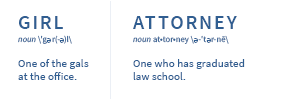From The New Yorker authored by Sue Halpern:
“Bradley Tusk has a plan to fix American democracy. A former high-level staffer for Chuck Schumer and Michael Bloomberg, among others, Tusk has recently been using his political wits to help tech companies sidestep red tape and clear regulatory hurdles. As he recounts in his new book, “The Fixer: My Adventures Saving Startups from Death by Politics,” Tusk has—for better or for worse—convinced authorities across the country to let Uber operate in their cities, figured out how to get the San Jose City Council to allow on-demand home delivery for marijuana, and toppled regulations banning the sale of online homeowners and renters’ insurance. When Uber, the first tech client of his fledgling consulting firm, didn’t have enough cash to pay him, Tusk took half his compensation in equity. As a consequence, he said, “I just got more money than I ever expected to have.”
Now Tusk, who is forty-five, is parlaying his Silicon Valley experience, and the fortune he made in the process, searching for a way to make it easier for people to vote. In the U.S., voter turnout has hovered around fifty-five per cent for Presidential elections since 1972, and is much lower for midterms and primaries. In New York’s gubernatorial primary this year, for example, twenty-four per cent of registered Democrats turned out, which was significantly higher than the ten per cent who bothered to vote in the primary four years ago. If the electorate is made up largely of partisan voters, Tusks believes, we end up electing tendentious, uncompromising politicians who do not represent the more moderate will of the people. “We’re completely polarized, and nothing gets done,” he said. “I don’t see how democracy survives absent radically higher participation.” With his wife, Harper Montgomery, Tusk created Tusk Montgomery Philanthropies, a foundation with two missions, one of which—funding school breakfast programs—is the of kind typically undertaken by the wealthy. The second, though, is either visionary or preposterous, depending on your perspective: the organization aims to crack the nut of voting by mobile phone, something computer scientists have been trying to do, unsuccessfully and in various ways, for the past two decades.”

